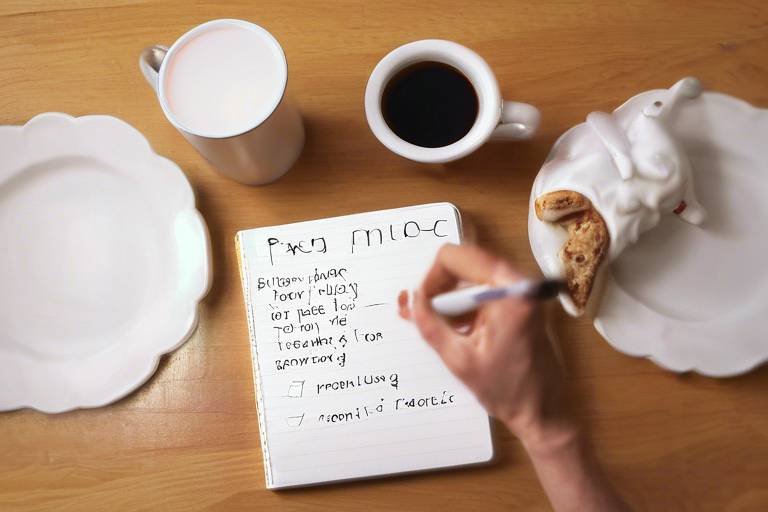How to Get Started with Meditation
Are you ready to embark on a journey of self-discovery and inner peace through meditation? Starting a meditation practice may seem daunting at first, but with the right guidance and mindset, you can easily incorporate this ancient practice into your daily routine. Let's dive into the world of meditation and explore the steps to begin your transformative journey.
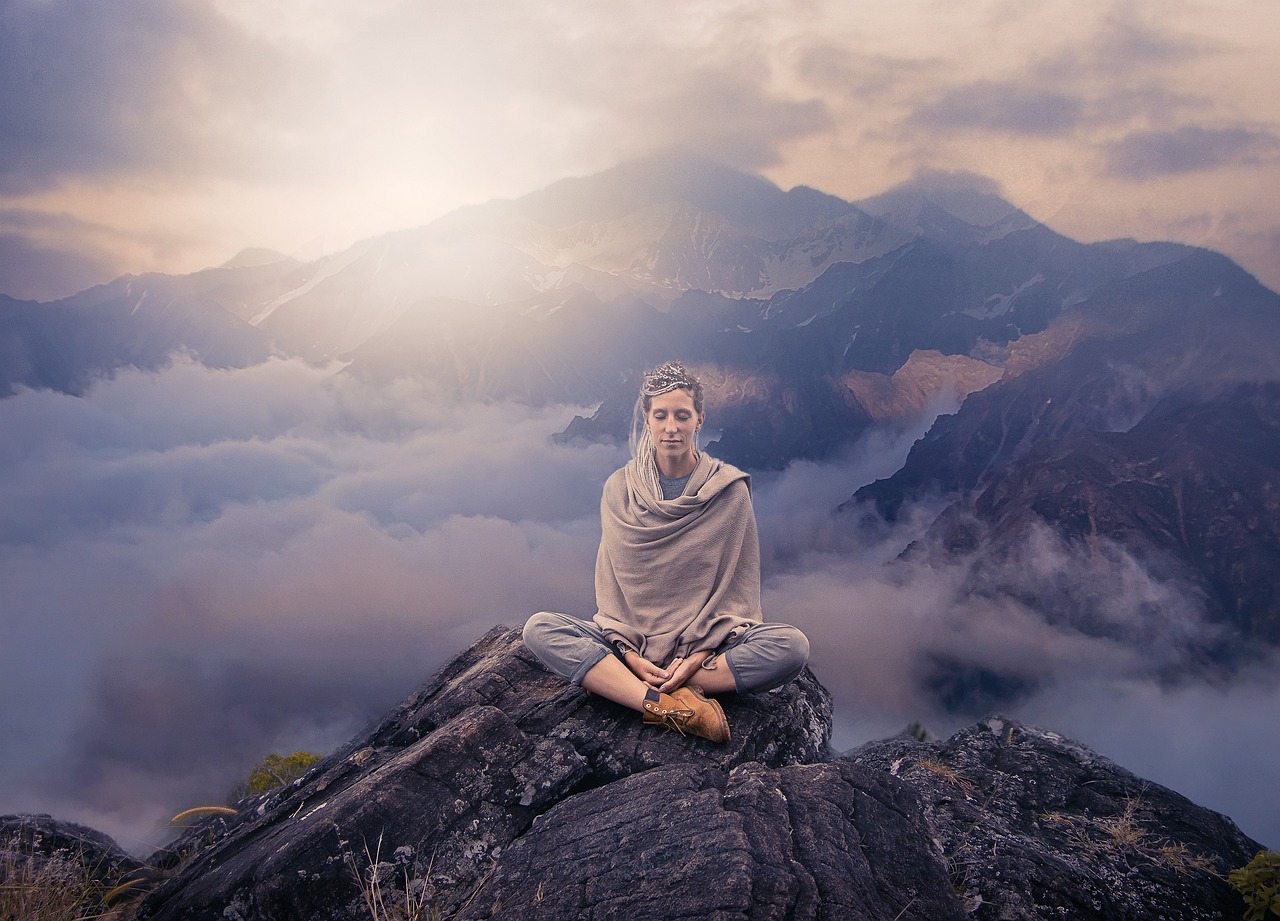
Understanding Meditation
Meditation is a practice that has been around for centuries, with roots in various cultures and spiritual traditions. It involves training the mind to focus and redirect thoughts, leading to a heightened state of awareness and inner peace. The primary goal of meditation is to cultivate a calm and stable mind, enabling individuals to better understand themselves and the world around them.
There are different forms of meditation, each with its own techniques and objectives. Mindfulness meditation, for example, emphasizes being present in the moment and observing thoughts without judgment. On the other hand, transcendental meditation involves silently repeating a mantra to achieve a state of deep relaxation and heightened awareness. Regardless of the method chosen, the essence of meditation lies in connecting with oneself and exploring the depths of consciousness.
Understanding the purpose of meditation is crucial for those embarking on this journey. It is not merely about relaxation or stress relief, although these are significant benefits. Meditation offers a pathway to self-discovery, self-improvement, and spiritual growth. By delving into the practice with an open mind and a willingness to explore the inner workings of the mind, individuals can unlock profound insights and transformative experiences.

Benefits of Meditation
When it comes to meditation, the benefits are truly remarkable. Not only does it provide a sense of calm and relaxation, but it also offers a myriad of physical, mental, and emotional advantages. Through the practice of meditation, individuals can experience a profound transformation in their overall well-being.
One of the key benefits of meditation is its ability to reduce stress and anxiety levels. In today's fast-paced world, stress has become a common occurrence for many individuals. By incorporating meditation into your daily routine, you can effectively manage stress and anxiety, leading to a more peaceful and balanced life.
Furthermore, meditation is known for its capacity to improve focus and clarity. In a world filled with distractions, maintaining concentration can be challenging. Through regular meditation practice, individuals can enhance their cognitive function, mental clarity, and overall ability to focus on tasks at hand.
Moreover, meditation has been shown to have a positive impact on physical health. From reducing blood pressure to boosting the immune system, the benefits of meditation extend beyond the mind to the body. By incorporating meditation into your daily life, you can experience improved physical well-being and overall health.
Overall, the benefits of meditation are vast and impactful. Whether you are looking to reduce stress, enhance focus, or improve your overall well-being, meditation offers a holistic approach to achieving a balanced and fulfilling life.

Reducing Stress and Anxiety
When it comes to reducing stress and anxiety, meditation can be a powerful tool to help calm the mind and promote relaxation. By incorporating meditation into your daily routine, you can effectively manage stress levels and cultivate a sense of inner peace. One of the key benefits of meditation is its ability to quiet the constant chatter of the mind and bring a sense of calmness to the present moment.
Meditation techniques such as mindfulness meditation, where you focus on the present moment without judgment, can help alleviate anxiety by grounding you in the here and now. By practicing mindfulness, you can learn to observe your thoughts and emotions without getting caught up in them, allowing you to let go of stress and worry.
Additionally, breathing exercises are another effective way to reduce stress and anxiety through meditation. Deep breathing techniques can help activate the body's relaxation response, leading to a decrease in heart rate and blood pressure. By focusing on your breath, you can bring your attention away from anxious thoughts and into a state of calmness and relaxation.
Guided visualization is another technique that can be beneficial for reducing stress and anxiety. By visualizing peaceful and calming scenes, such as a serene beach or a lush forest, you can create a mental escape from the pressures of everyday life. This practice can help relax both the mind and body, promoting a sense of tranquility and well-being.

Improving Focus and Clarity
When it comes to improving focus and clarity, meditation acts as a powerful tool that can sharpen the mind and enhance cognitive abilities. Just like a skilled sculptor carefully chisels away at a block of marble to reveal a masterpiece, meditation helps to chisel away distractions and mental clutter to reveal a sharper focus and clearer thinking.
Through regular practice, individuals can experience a heightened sense of awareness and concentration, allowing them to dive deep into tasks with unwavering attention. It's like having a mental magnifying glass that amplifies your ability to concentrate on the present moment, blocking out the noise of external distractions.
Moreover, meditation cultivates mental clarity by decluttering the mind from the constant stream of thoughts that often cloud our judgment and decision-making processes. It's akin to decluttering a messy room, creating space for organized thoughts and clear insights to emerge.
Imagine your mind as a vast sky filled with clouds of thoughts. Meditation acts as the gentle wind that blows away these clouds, revealing the blue sky of your true focus and clarity. With regular practice, this sense of mental clarity becomes more accessible in your daily life, allowing you to navigate challenges with a calm and focused mind.

Getting Started
Getting started with meditation can seem daunting at first, but with the right approach, it can become a rewarding and enriching practice in your daily life. The key to beginning your meditation journey is finding a quiet and comfortable space where you can fully focus on the present moment. This could be a cozy corner in your home, a peaceful park, or even a dedicated meditation room if you have the luxury of space. Creating a serene environment free from distractions is essential to set the stage for a successful meditation session.
Once you have found your ideal meditation spot, the next step is to determine the best time to practice. Some people prefer meditating in the morning to start their day with a clear mind, while others find evening meditation helps them unwind and relax before bedtime. Experiment with different times of the day to see what works best for you and fits seamlessly into your routine.
Before diving into advanced meditation techniques, it's beneficial to start with basic practices such as mindfulness, breathing exercises, or guided visualization. These simple techniques can help you ease into meditation gradually and build a strong foundation for more complex practices in the future. Remember, the key is consistency and patience; progress in meditation is a journey, not a race.
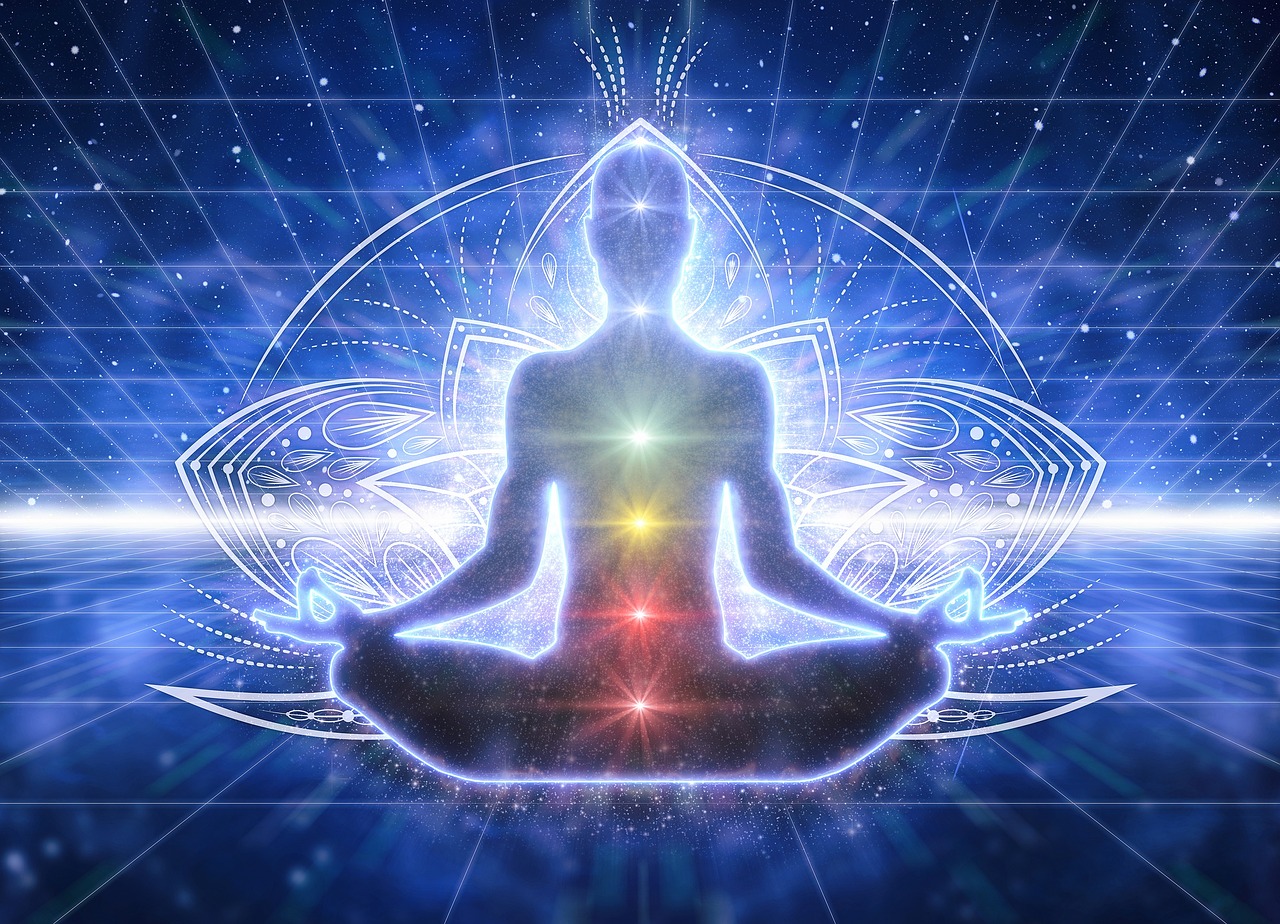
Basic Meditation Techniques
When it comes to starting a meditation practice, it's essential to begin with basic meditation techniques that lay a strong foundation for your journey towards mindfulness and inner peace. One of the fundamental techniques is mindfulness meditation, which involves focusing on the present moment without judgment. By paying attention to your thoughts, feelings, and sensations in a non-reactive manner, you can cultivate a sense of awareness and acceptance.
Another effective technique is breathing exercises, where you concentrate on your breath to anchor your attention and calm the mind. By observing the inhalation and exhalation patterns, you can regulate your breathing and promote relaxation. Breathing exercises are particularly beneficial for reducing stress and promoting a sense of tranquility.
Guided visualization is a technique that involves creating mental images or scenarios to evoke positive emotions and enhance relaxation. By visualizing peaceful scenes or engaging in guided meditation sessions, you can stimulate your imagination and create a sense of inner harmony. This technique is helpful for those who struggle with racing thoughts and find it challenging to quiet the mind.
Combining these basic meditation techniques can help you establish a solid meditation practice that aligns with your goals and preferences. Whether you prefer focusing on your breath, practicing mindfulness, or engaging in guided visualizations, the key is to find a technique that resonates with you and supports your journey towards greater self-awareness and well-being.
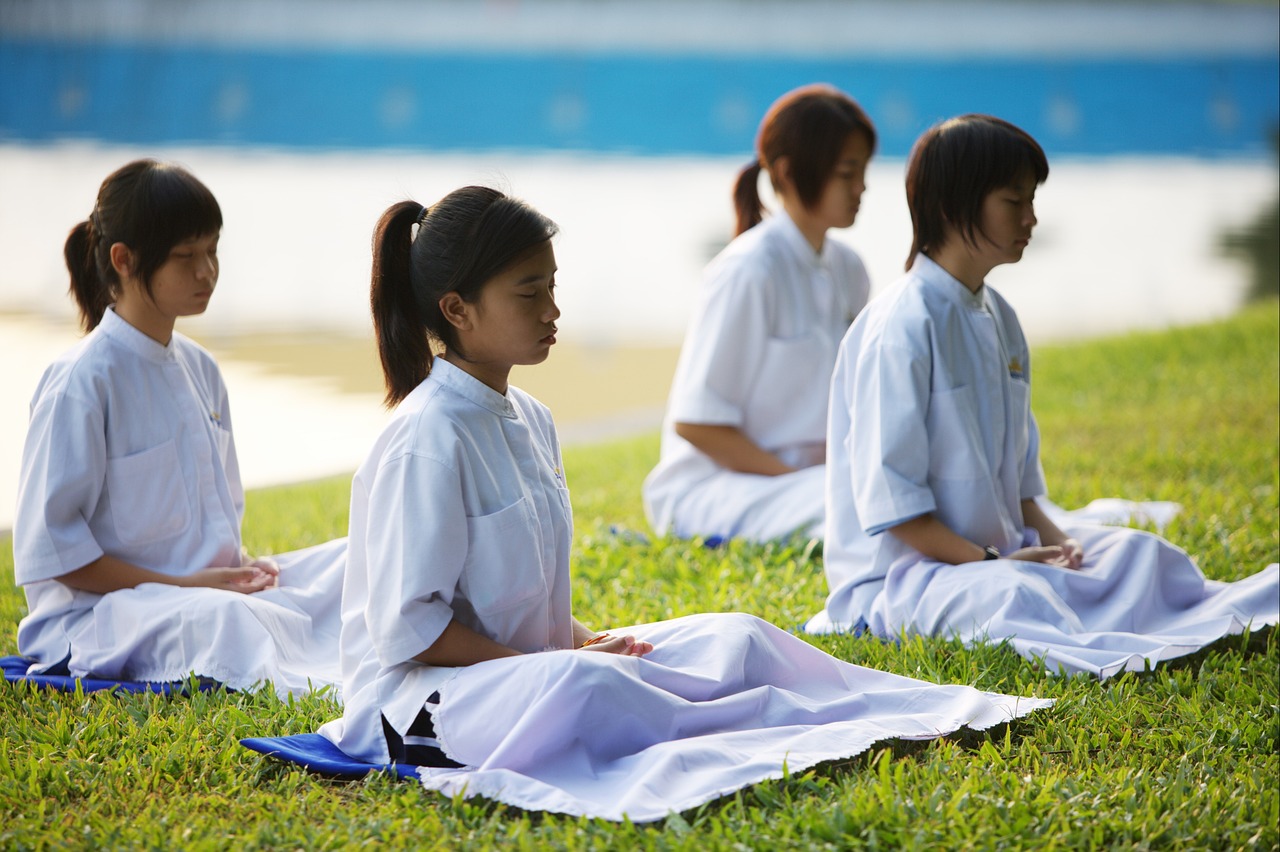
Overcoming Challenges
Embarking on a meditation journey can be both exciting and challenging. As a beginner, you may encounter various obstacles that could hinder your progress. One common challenge is the inability to quiet the mind and maintain focus during meditation sessions. It's normal to have racing thoughts or distractions, but with practice and patience, you can overcome these hurdles.
Another obstacle many beginners face is finding the motivation to meditate regularly. In our fast-paced world, it can be difficult to carve out time for stillness and introspection. However, by understanding the benefits of meditation and setting realistic goals, you can stay motivated and committed to your practice.
Furthermore, some individuals struggle with physical discomfort or restlessness while meditating. Sitting still for an extended period may cause discomfort in the body, leading to distractions and unease. To overcome this challenge, you can explore alternative meditation postures such as lying down or using supportive cushions to enhance comfort.
Consistency is key when it comes to meditation practice. Many beginners find it challenging to maintain a regular routine amidst their busy schedules. Setting a specific time each day for meditation and creating a dedicated space for practice can help establish a sense of routine and discipline.
Additionally, dealing with expectations and judgment can be a significant challenge in meditation. It's common to expect immediate results or compare your progress to others, leading to frustration and self-criticism. Remember that meditation is a personal journey, and progress takes time. Embrace each moment of stillness without judgment or expectation.
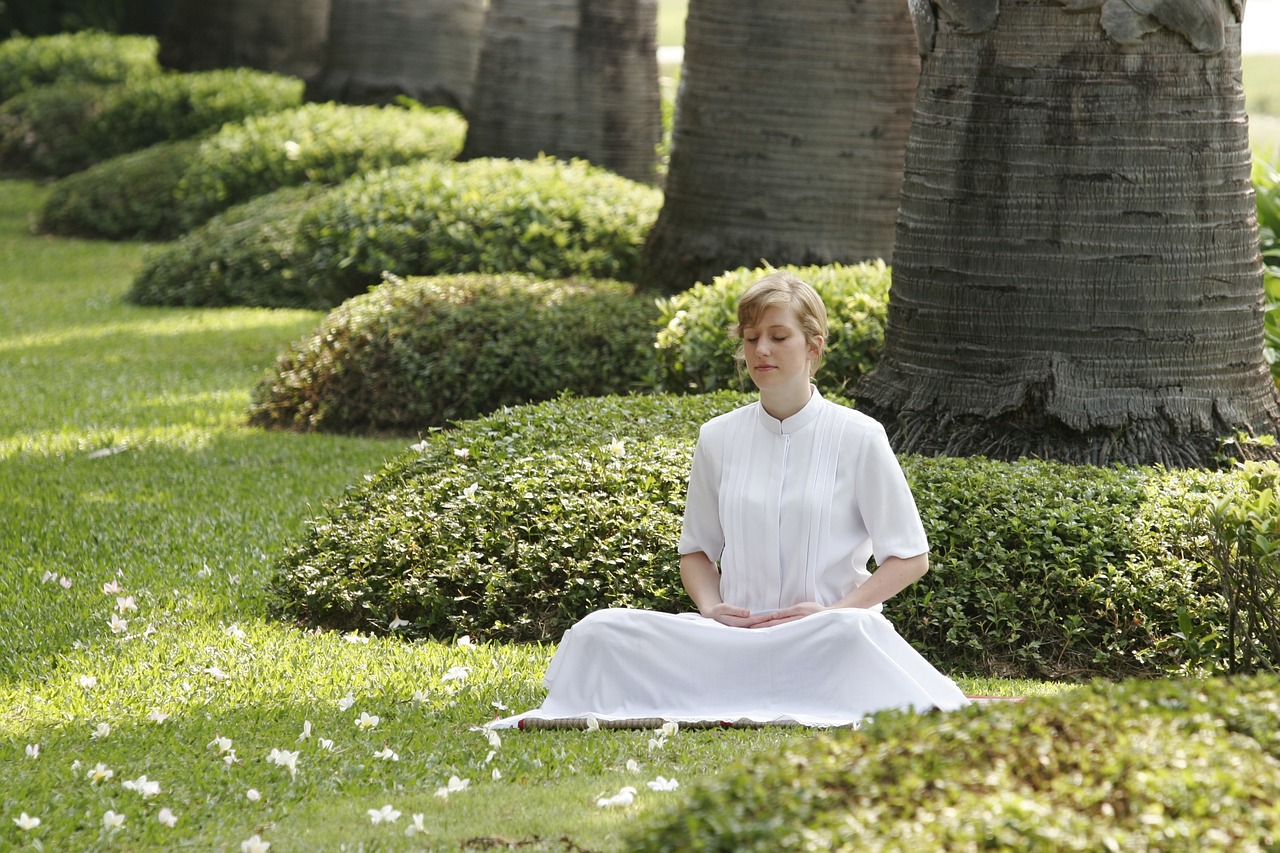
Building a Meditation Routine
Building a meditation routine is essential for making meditation a consistent part of your daily life. Just like any other habit, regular practice is key to experiencing the full benefits of meditation. To build a successful meditation routine, start by setting aside a specific time each day dedicated to your practice. This could be in the morning before starting your day or in the evening before bedtime.
Creating a peaceful and comfortable space for meditation is also crucial. Find a quiet spot where you won't be disturbed, and consider using elements like cushions, candles, or soothing music to enhance the ambiance. Your meditation space should be a sanctuary where you can fully relax and focus inward.
Experiment with different meditation techniques to find what resonates with you the most. Whether it's mindfulness meditation, loving-kindness meditation, or mantra meditation, choose a practice that aligns with your goals and preferences. Consistency is more important than the specific technique you choose, so stick with what feels right for you.
Integrating mindfulness into your daily activities can also help reinforce your meditation routine. Practice being present and aware during everyday tasks like eating, walking, or washing dishes. This continuous awareness can deepen your overall mindfulness practice and make it easier to transition into formal meditation sessions.
Track your progress and celebrate small victories along the way. Keep a meditation journal to reflect on your experiences, insights, and challenges. Setting achievable goals and acknowledging your growth can boost your motivation and commitment to your meditation routine.
Frequently Asked Questions
- What is meditation?
Meditation is a practice that involves focusing the mind on a particular object, thought, or activity to achieve mental clarity, emotional calmness, and a sense of inner peace.
- How can meditation benefit me?
Meditation offers a wide range of benefits, including reducing stress and anxiety, improving focus and concentration, enhancing emotional well-being, and promoting overall mindfulness and self-awareness.
- Are there different types of meditation?
Yes, there are various forms of meditation, such as mindfulness meditation, loving-kindness meditation, transcendental meditation, and guided visualization. Each type has its own unique techniques and focus areas.
- Can anyone meditate?
Yes, meditation is a practice that can be done by anyone, regardless of age, background, or beliefs. It is accessible to everyone and can be tailored to suit individual preferences and needs.
- How do I start a meditation practice?
To begin meditating, find a quiet and comfortable space, choose a meditation technique that resonates with you, start with short sessions, and gradually increase the duration as you build consistency in your practice.
- What should I do if I find it difficult to meditate?
If you encounter challenges while meditating, such as a wandering mind or restlessness, try to gently bring your focus back to the present moment without judgment. It's normal to face obstacles in meditation, and with practice, you can overcome them.
- How often should I meditate?
The frequency of meditation sessions can vary based on personal preference and schedule. It's recommended to meditate at least once a day, but even a few minutes of meditation can be beneficial in cultivating mindfulness and relaxation.













